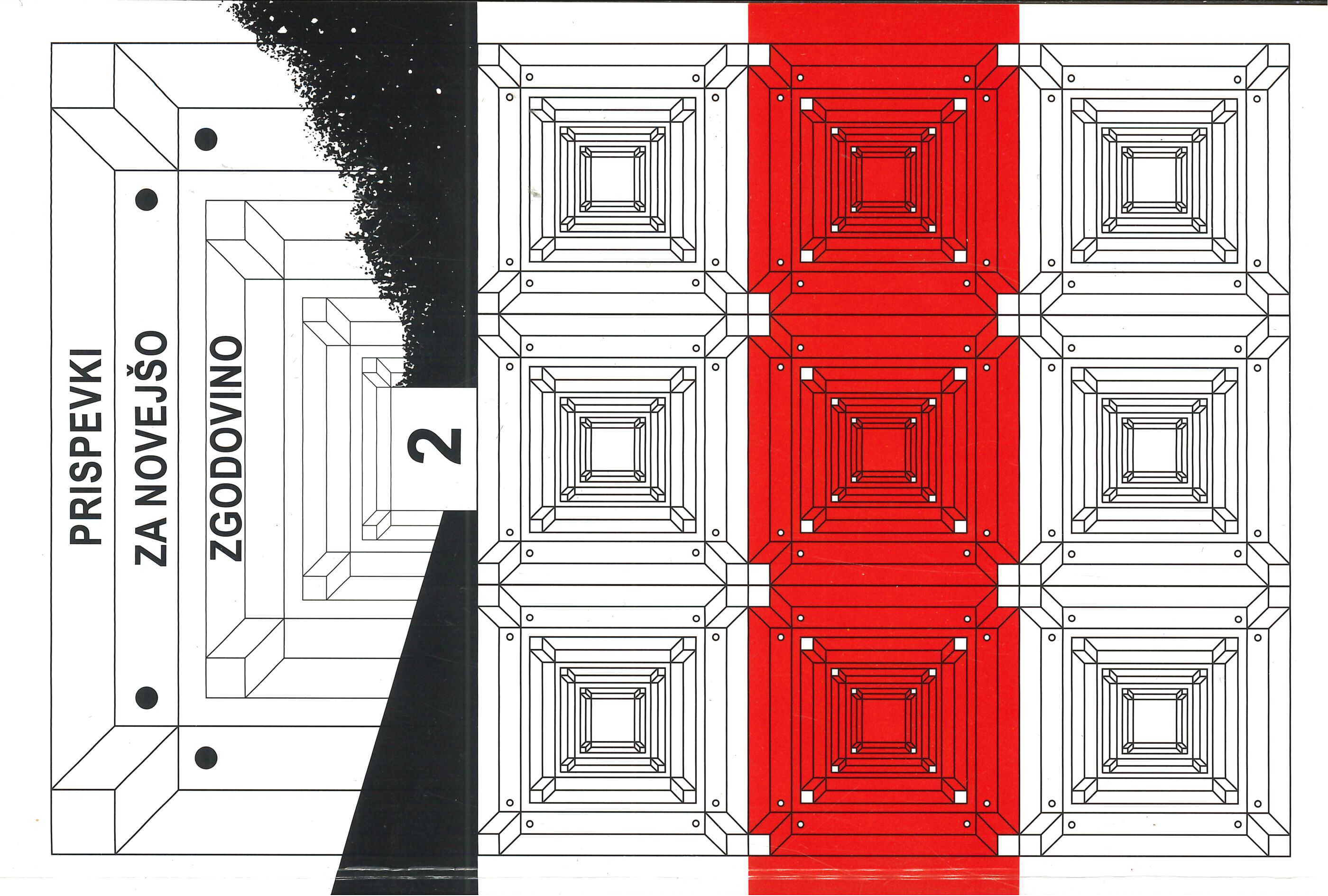"Militarizacija materinstva" – ženski "naravni poklic" in vélika vojna
DOI:
https://doi.org/10.51663/pnz.55.2.04Ključne besede:
motherhood, fertility, education, children, womenPovzetek
With the help of publications, legislation, memoranda and promotional material, this article shows how various actors in the Slovene-speaking area, during the First World War, addressed their mothers, and if also in their cases, the phenomenon of the "militarization of motherhood" was shown, which was typical of other European countries. In the context of the discourse "militarization of motherhood", it analyzes the ways of how female (national) identity was formed. It tries to answer the question of what (patriotic) duties were imposed to women as mothers, for example, if as a result of declining birth rates in that time, even we encountered pronatalistic initiatives, especially those that were advocating social and health protection of (illegitimate) mothers and children. It also analyzes the views on the educational work of mothers at the time when this was, due to the absence of fathers, irregular lessons and the difficult war situation, even more difficult. At the same time, it studies the representations of women as mourning mothers at the deaths of their sons-soldiers. In this context, it establishes that during the war, the motif of a mourning, but brave and proud mother was frequent also in the Slovene press. A separate chapter presents the views of female authors on the topic of motherhood.Literatura
Augeneder, Sigrid. »Arbeiterinnen im Ersten Weltkrieg: Lebens- und Arbeitsbedingungen proletarischer Frauen in Österreich.« Doktorska disertacija, Universität Wien, 1987.
Cergol Paradiž, Ana. »Javni in zasebni vidiki rodnostnih strategij Slovenk in Slovencev v prvi Jugoslaviji.« Doktorska disertacija, Univerza v Ljubljani, 2013.
Darrow, H. Margaret. French Women and the First World War: War Stories of the Home Front Legacy of the Great War. Oxford: Berg, 2000.
Evans, Suzanne. Mothers of Heroes, Mothers of Martyrs: World War I and the Politics of Grief. Montreal, Kingston: McGill-Queen's University Press, 2007.
Grayzel, R. Susan. Women and the First World War. New York, London: Longman, 2002.
Grayzel, R. Susan. Women's Identities at War: Gender, Motherhood, and Politics in Britain and France during the First World War. Chapel Hill: University of North Carolina Press, 1999.
Hanna, Martha. »The couple.« V: The Cambridge History of The First World War. Volume III. Civil society, ur. Jay Winter, 6−28. Cambridge: Cambridge University Press, 2014.
Healy, Maureen. Vienna and the Fall of the Habsburg Empire: Total War and Everyday Life in World War I. New York: Cambridge University Press, 2004.
Huss, Marie Monique. »Pronatalism and the popular ideology of the child in wartime France: the evidence of the picture postcard.« V: The Upheaval of War: Family, Work and Welfare in Europe, 1914–1918, ur. Richard Wall in Jay Winter, 329−367. Cambridge: Cambridge University Press, 1988.
Mihurko Poniž, Katja. Evine hčere: konstruiranje ženskosti v slovenskem javnem diskurzu 1848−1902. Nova Gorica: Univerza, 2009.
Neyer, Gerda. »Die Entwicklung des Mutterschutzes in Deutschland, Österreich und der Schweiz von 1877 bis 1945.« V: Frauen in der Geschichte des Rechts: von der frühen Neuzeit bis zur Gegenwart, ur. Ute Gerhard. München: Beck, 1997.
Pignot, Manon. »Children.« V: The Cambridge History of The First World War. Volume III. Civil society, ur. Jay Winter, 29−45. Cambridge: Cambridge University Press, 2014.
Rowan, Caroline. »For the duration only: Motherhood and Nation in First World War.« V: Formations of Nation and People, ur. Tony Bennet, 152−170. London, Boston, Malburne, Henley: Routledge & Kegan Paul, 1984.
Selišnik, Irena. »Socialno materinstvo: koncepti državljanstva in argument skrbi pri uveljavljanju žensk v javni sferi na začetku 20. stoletja.« Teorija in praksa: družboslovna revija 40, št. 6 (2003): 1155−1166.
Selišnik, Irena. »Ženske v zaledju vojnih zubljev.« V: Velika vojna in Slovenci: 1914−1918, ur. Peter Vodopivec in Katja Kleindienst, 185−198. Ljubljana: Slovenska matica, 2005.
Stanonik, Marija. »Pisma slovenskega vojaka iz staroavstrijske vojske (1914−1916).« Loški razgledi 32 (1985): 189-195.
Šircelj, Milivoja. Rodnost v Sloveniji od 18. do 21. stoletja. Ljubljana: Statistični urad Republike Slovenije, 2006.
Štupca, Marija. Žensko vprašanje: majhen poizkus k srečni rešitvi tega vprašanja na Slovenskem. Ljubljana: Katoliška tiskarna, 1917.
Taylor Allen, Ann. Feminism and Motherhood in Western Europe, 1890−1970: The Maternal Dilemma. New York: Palgrave Macmillan, 2005.
Usborne, Cornelie. »Pregnancy is the woman's active service.« V: The Upheaval of War: Family, Work and Welfare in Europe, 1914−1918, ur. Richard Wall in Jay Winter, 389−416. Cambridge: Cambridge University Press, 1988.
Wall, Richard in Jay Winter. ur. The Upheaval of War: Family, Work and Welfare in Europe. Cambridge: Cambridge University Press, 1988.
Winter, Jay. »Families.« V: The Cambridge History of The First World War. Volume III. Civil society, ur. Jay Winter, 46−68. Cambridge: Cambridge University Press, 2014.
Zalokar, Alojz. O ljudskem zdravju: poglavja iz socijalne medicine. Ljubljana: Tiskovna zadruga, 1918.
Žnidaršič-Žagar, Sabina. Ženski so pa vzrasle svetlejše dolžnosti nego kuhati in prati. Ljubljana: Pedagoški inštitut, 2009.
Prenosi
Objavljeno
Številka
Rubrika
Licenca
Avtorji prispevkov, objavljenih v tej reviji, soglašajo z naslednjimi pogoji glede avtorskih pravic:
- Avtorji ohranijo avtorske pravice, reviji pa odobrijo pravico do prve objave. Delo se hkrati zaščiti z licenco za prosto uporabo avtorskih del (Creative Commons Attribution License), ki drugim osebam omogoča deljenje dela ob priznanju avtorstva in prve objave v tej reviji.
- Avtorji lahko sklenejo ločene dodatne pogodbene dogovore za neizključno distribucijo različice dela, objavljene v reviji, (npr. oddaja v institucionalni repozitorij ali objava v knjigi) z navedbo, da je bilo delo prvič objavljeno v tej reviji.
- Pred postopkom pošiljanja in med njim lahko avtorji delo objavijo v spletu (npr. v institucionalnih repozitorijih ali na svoji spletnih strani), k čemer jih tudi spodbujamo, saj lahko to prispeva k plodnim izmenjavam ter hitrejšemu in obsežnejšemu navajanju objavljenega dela (glej The Effect of Open Access).


